April 22, 2025 | 02:38 GMT +7
April 22, 2025 | 02:38 GMT +7
Hotline: 0913.378.918
April 22, 2025 | 02:38 GMT +7
Hotline: 0913.378.918
Sitting in the stilt house while facing out the riverside, we enjoyed delicious pieces of boiled duck meat. Outside, the birds chirped some melodies, the fishes strummed the water zither, and the coconut leaves mixed in some subtle rustle of wind.
Trinh Xuan Hai - an employee who has worked on the farm of Nguyen Doan Hiep the “King of mallard” for more than 5 years, said, "The ducks here are fed with vegetables, duckweed, bran, corn, molasses. There will be no young feathers left after they are 100-day old. Their meat becomes firm, the meat quality reaches perfection, very delicious to the mouth. The one we eat today is just over 70 days old, so I only grade it 7 out of 10.”
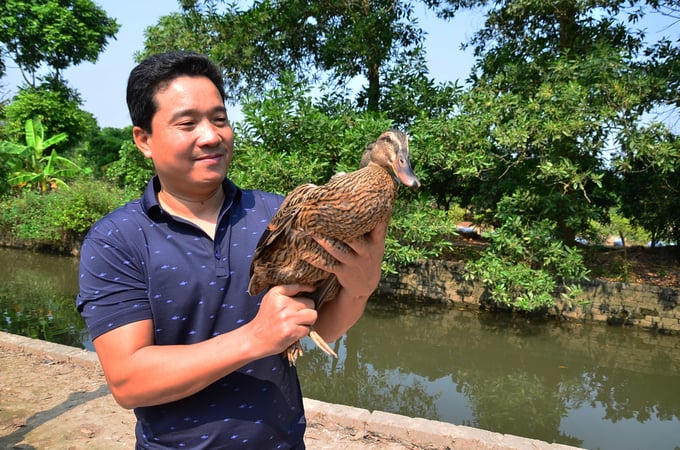
Nguyen Doan Hiep the ‘King of mallard'. Photo: Duong Dinh Tuong.
Nguyen Doan Diep began his story. His family has a tradition of farming, only when it was the two brothers’ turn that they could leave that lifestyle, went to university and lived in Hanoi. Diep had the chance to taste mallard a few times when he received guests. He found it delicious, but the most shocking thing was that it was too expensive, up to VND 900,000 for one whole duck. It was more than 10 years ago, so that amount of money was equivalent to about VND 2 million at the present date.
By pure chance he read an article about former Deputy Prime Minister Nguyen Cong Tan raising mallards and wild geese. Diep was inspired. The man then brought some mallards from the South for more than VND 100,000/head, then collected more varieties of mallards from many sources for VND 400-500,000/head.
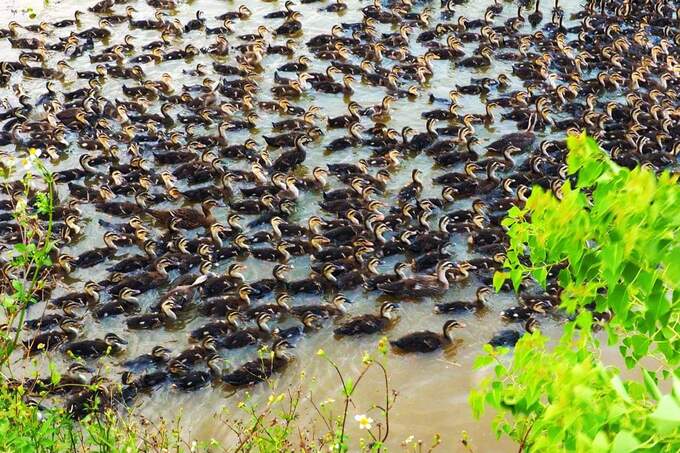
Ducklings swimming on the farm. Photo provided by the character.
Diep bought a 10-ha piece of land in Quang Vinh commune (An Thi district, Hung Yen province) to build a farm. His family thought he was doing something big, but when he brought the ducks back, everyone protested and kept asking why he went from a government worker to a duck farmer. Faced with a strong reaction from the family, he let his younger brother, who was working at a foreign company in Hanoi at that time, manage the farm in his stead.
In just over a year, from a few hundred ducklings, they had a few thousand parents, he sent their eggs to the incubators. When the ducks multiplied to the number of tens of thousands, they suddenly died for unknown reasons. Just like that, Diep lost billions of dongs. The Diep brothers had to encourage each other again: The error was in humans, not in animals. There were many epidemics in winter. Without vaccination, failure is inevitable.
Diep’s farm was divided into the laying duck area, the hatching area, the duckling area, the young duck area and the adult duck area. Every area has a pond or river for them to swim so that the duck survival rate from egg hatching to exporting stage reached over 90%. Later, when the duck breeds were mass-produced, they sold them to the people for only VND 10,000/head - something that no one had ever been able to do before.
A broad view of Diep's duck farm.
“I felt a winner after the success with mallard. Everyone would sing praises after eating my duck. I set a new goal, opened a restaurant called ‘King of mallard’ in 2016 and served unique dishes such as fried mallard with eggplant, braised mallard with Asiatic pennywort, and stewed mallard with Northern medicine.
“It was my friends who first came to try it, found it delicious and recommended it to other friends, and the friends recommended it to more people, the circle went on and on. At that time, we sold one dish for only VND 280,000/head, almost half cheaper than the price people were selling. Other restaurants had to lower the price, but couldn't catch up with us because we had already made a chain from farm to table. The ducks were clean, the fishes were clean, and so were our vegetables.
“Just like that, I opened three more shops, selling 800-1,000 mallards on average per day. At our peak the farm had 100,000 ducks for slaughter, 2,000 laying ducks, and 4 incubators. Apart from supplying to the farm, we also brought the ducks to six establishments to process with the same formula of feed and vaccines. About 70 days later they were brought back to the farm to raise for up to 100 days to export. All the stages applied VietGAP standards. At that time, many places wanted to apply for a franchise of "King of mallard". Some people even paid billions but I refused because it would be difficult to manage the quality and price.”
Not only nationalizing the mallard, but the Diep brothers also nationalized the dishes made from mallard when they are sold at the farm for more than VND 100,000 /kg, and over VND 200,000/head at the restaurant. But they did not expect that there was a day the Covid-19 pandemic would come.
Four restaurants consuming nearly 1,000 ducks a day with a turnover of hundreds of millions of dongs, were shut down, but the rent still has to be paid, and so were the wages of nearly 100 workers. The pandemic remained for too long so the farm workers had to cut back on the ducks' rations, then release them completely into the river for them to feed themselves.
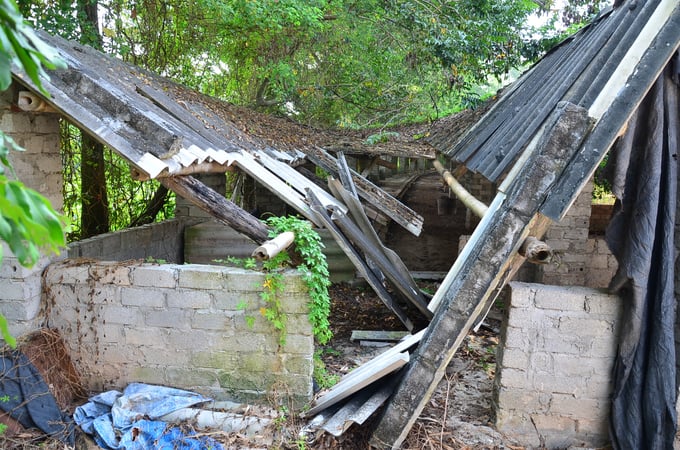
The young duck area has been seriously degraded. Photo: Duong Dinh Tuong.
Normally, the farm had 10-15 workers. Diep had no choice but to fire them, leaving behind only Trinh Xuan Hai. 5,000 duck eggs must be buried under the trees. The ducklings without a feeder also starved to death. The grass grew tall, almost as high as the person’s stomach. 200 longan roots, nearly 1,000 pomelo roots, 300 mango roots, all the fruits fell down and covered the ground in full. The trees then died since there was no one to take care of them.
Diep crumbled in despair. He did not even have the will to leave the house. Many times his mother and wife advised him to sell the farm to pay off the debt, but he refused, so the family atmosphere became quite tense.
Nearly gave up, but then he stood up once again and encouraged his loved ones, saying that he would start all over again after the pandemic. He quietly reopened the restaurant at Lane 21, Le Van Luong Street in May, but many people came to support him. The restaurant was able to consume 80-100 heads per day.
Diep has even quit his job in Hanoi recently to directly recruit workers, determined to resume production: "Now the situation of the farm is like a severe Covid-19 patient: just recovered from ECMO, but unable to remove the breathing tube. Life is still as hard as ever!
“I have hope in the idea of multi-valued agriculture of Minister of Agriculture and Rural Development Le Minh Hoan because I used to cooperate with schools to bring students here to experience from picking eggs, nurturing ducklings to caring and catching ducks Delegations from Korea and China used to come here to see the safe duck raising chain, experience eating on the spot, each trip consumes from a few hundred to thousands of ducks because they also bought them as gifts. But now my capital and seed resources have been exhausted, the output is also limited, and I really need the State's support to make a comeback somehow.”
Translated by Samuel Pham

(VAN) At the close of the P4G Summit, delegates agreed to transform agricultural and food systems sustainably, ensuring food security while protecting the environment.
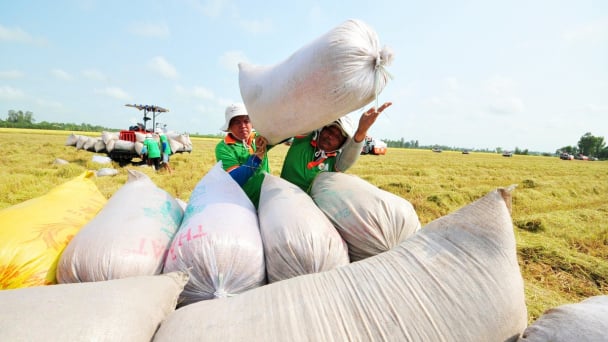
(VAN) The rice industry in the Mekong Delta is undergoing a major transformation, shifting toward sustainable, high-quality, and low-emission exports to meet the green and clean standards increasingly demanded by international markets.
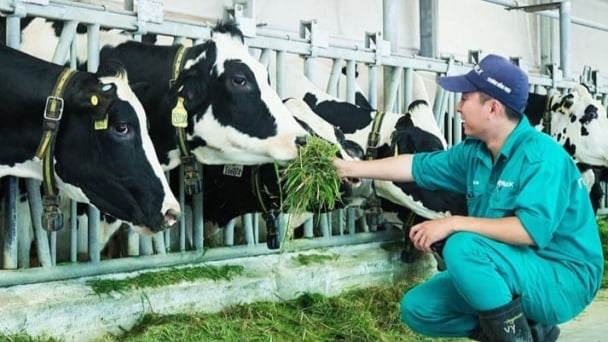
(VAN) According to Tong Xuan Chinh, Deputy Director of the Department of Livestock Production and Animal Health, Vietnam’s dairy cattle industry must overcome seven major challenges to achieve sustainable development.
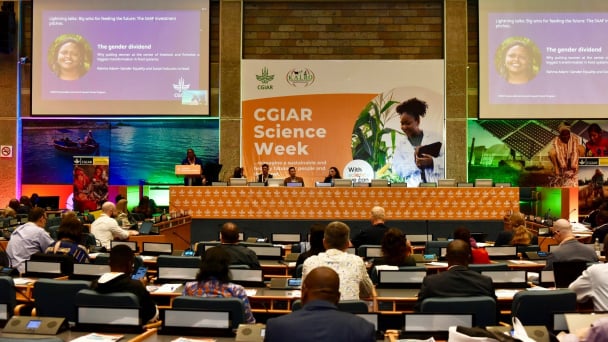
(VAN) The CGIAR’s Sustainable Animal and Aquatic Foods (SAAF) program represents a new approach that emphasizes the transformation of food systems toward sustainability.
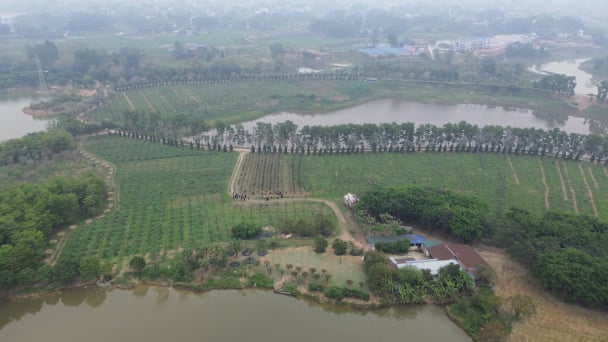
(VAN) Scientists assume that industrial agriculture has been 'outdated.' As a result, a comprehensive overhaul or a revolution in the direction of embracing ecological agriculture is needed.
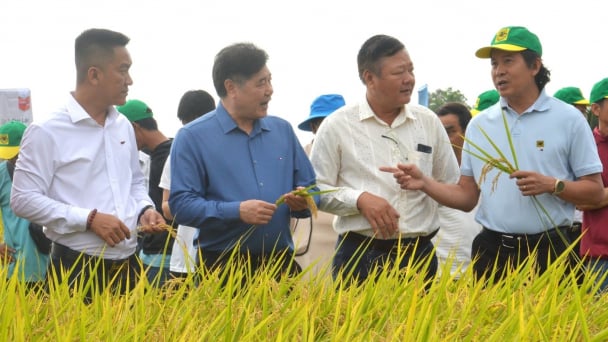
(VAN) The results from pilot fields are catalyzing the expansion of the One million hectares of high-quality, low-emission rice project in Kien Giang.
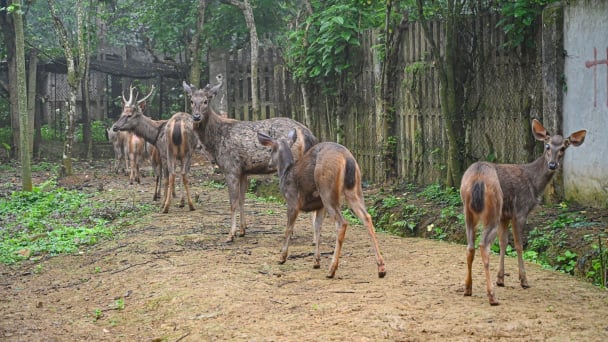
(VAN) On the morning of April 11, Cuc Phuong National Park received 18 individuals of endangered and rare wild animals from Da Nang city.